 Sex trafficking has been in our tribal communities since pre-colonization 500 plus years ago. Colonization has left an upsetting image on our bodies through assimilation and ongoing laws that target Native women and children. For an example Disney movie Pocahontas depicts a native woman falling in love and saving John Smith from her father and later in the story she falls in love with John Rolfe. Of course, the way Disney depicts this story in a beautiful way, where Pocahontas wanted to experience conquest however realistically, Pocahontas was only 11 years old when she met Smith and was later sexually assaulted and trafficked.
Sex trafficking has been in our tribal communities since pre-colonization 500 plus years ago. Colonization has left an upsetting image on our bodies through assimilation and ongoing laws that target Native women and children. For an example Disney movie Pocahontas depicts a native woman falling in love and saving John Smith from her father and later in the story she falls in love with John Rolfe. Of course, the way Disney depicts this story in a beautiful way, where Pocahontas wanted to experience conquest however realistically, Pocahontas was only 11 years old when she met Smith and was later sexually assaulted and trafficked.
After 500 years of settler colonization our tribal peoples experience to violence has been normalized amongst our communities due to the lack of structure of data collection, underreporting, and infrastructures for police stations, shelters, and resource centers.
At CSVANW we are apart of the New Mexico Human Trafficking Tribal Taskforce and New Mexico State Human Trafficking Taskforce.
Why are Native Women most vulnerable to sex trafficking?
“For centuries, sexual violence has been a cornerstone of the treatment of Native American populations, integral to colonization and displacement. Sex trafficking of contemporary indigenous women is “almost indistinguishable from the colonial tactics of enslavement, exploitation, exportation and relocation”, writes Sarah Deer, professor of law at Kansas University and author of The Beginning and End of Rape: Confronting Sexual Violence in Native America.” – The Guardian (link)

Some of the reasons that Native Women are more vulnerable to sex trafficking include:
- Financial barriers
- Addictions
- Depression
- Access to jobs
- Homelessness
- Forced
Signals/Identifiers of victims
“Sex trafficking occurs when individuals are made to perform commercial sex through the use of force, fraud, or coercion. Any child under 18 who is involved in commercial sex is legally a victim of trafficking, regardless of whether there is a third party involved.
Someone may be experiencing sex trafficking if they:
- Want to stop participating in commercial sex but feel scared or unable to leave the situation.
- Disclose that they were reluctant to engage in commercial sex but that someone pressured them into it.
- Live where they work or are transported by guards between home and workplace.
- Are children who live with or are dependent on a family member with a substance use problem or who is abusive.
- Have a “pimp” or “manager” in the commercial sex industry.
- Work in an industry where it may be common to be pressured into performing sex acts for money, such as a strip club, illicit cantina, go-go bar, or illicit massage business.
- Have a controlling parent, guardian, romantic partner, or “sponsor” who will not allow them to meet or speak with anyone alone or who monitors their movements, spending, or communications.”
– National Human Trafficking Hotline (link)
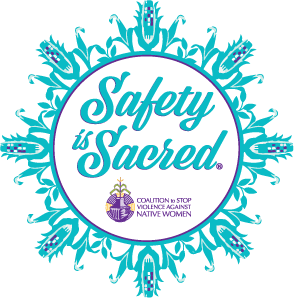
Some other signs and signals of sex trafficking victims include:
- Drug and alcohol addiction
- Burns, Broken bones, Concussions
- STDs
- Poor mental health behavior (Fearful, anxious, nervous/paranoid)
- Avoids eye contact
- Signs of sexual abuse/ physical restraint
- No personal possessions
- Not allowed or able to speak for themselves (Third Party might be present)
- Loss of sense in time
Where is sex trafficking happening?
- Strip Clubs
- Casinos
- Escort Services
- Massage Parlors
- Hotels
- Shopping Malls
- Truck Stops/Gas stations
- Homes
- Powwows
- Internet (Craigslist, backpage,etc)
Tactics of Traffickers are consistent with many of the tactics used by colonial and American Governments to subjugate Native people. This power and control is so deeply ingrained in American history that is often rendered invisible and thus becomes normalized.
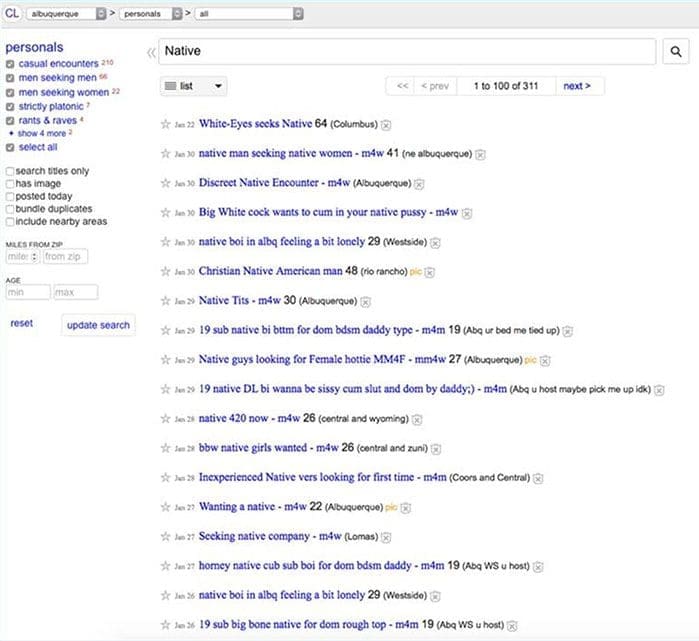
Traffickers will Promise…
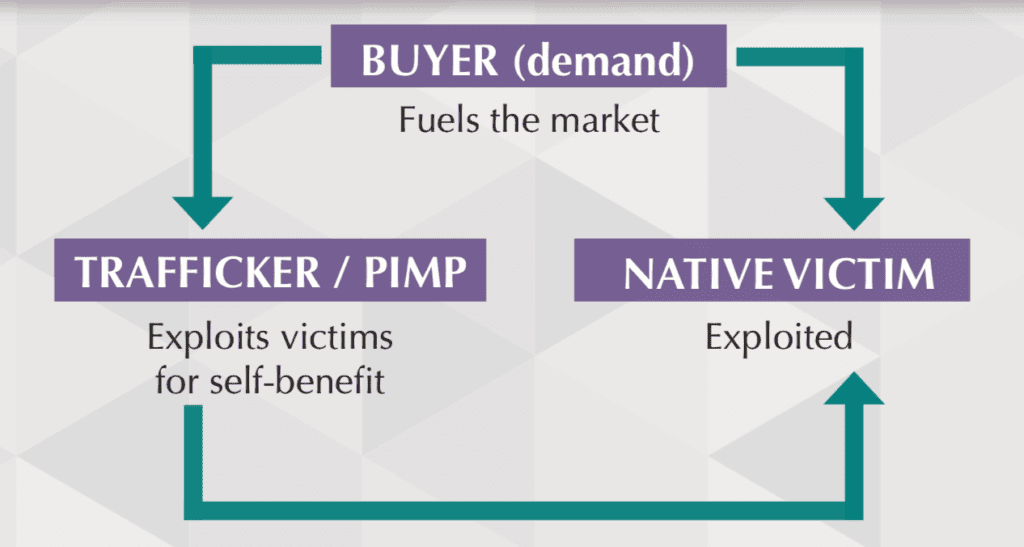
- Love and Attention
- Expensive gifts and appealing promises
- Stability, family and shelter
- Money
- Better life
Resources
Hotlines & Helplines
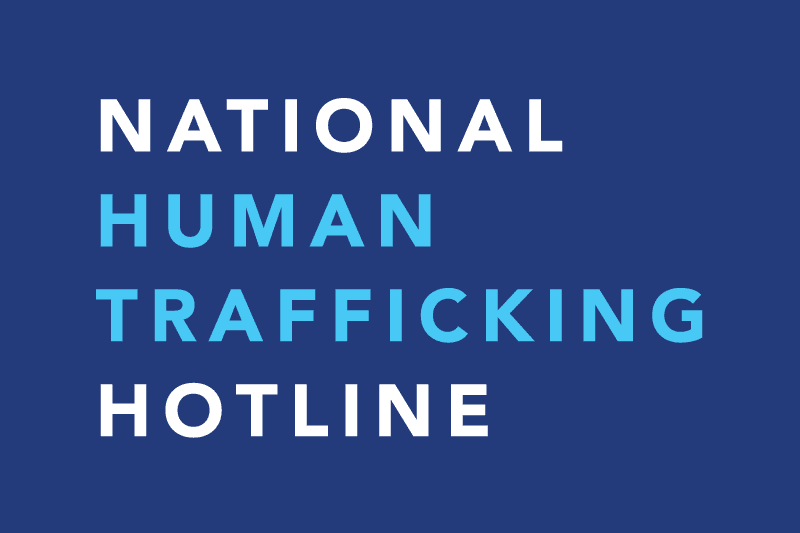
TTY: 711
Text 233733
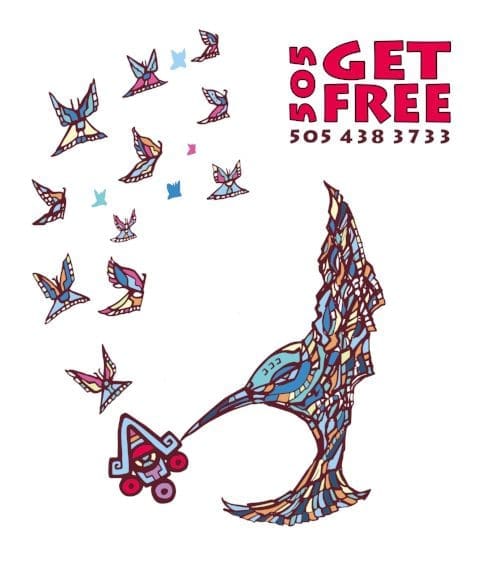
On This Page:











